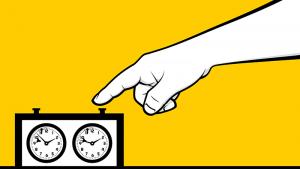
Punishing Unsound Openings
Unsurprisingly, one of my favorite movies of all time is Searching for Bobby Fischer (I know - the things you find out about me!). Hollywood-style dramatizations of chess games aside, the film is extremely well-made, featuring a thoughtful exploration of Josh Waitzkin's odyssey through the chess world (the film is based on a true story; Waitzkin later became a strong IM and a taekwondo champion). One of the primary reasons for Waitzkin's immediate success is one piece of advice that his coach NM Bruce Pandolfini (wonderfully portrayed by Ben Kingsley) repeats time and time again: do not bring your queen out too early in the game.
This is hardly a revolutionary suggestion, but it mimics a "principle" that many of us are taught at the outset of our chess careers: Do not try to punish offbeat opening play before completing your development. At a class D or E level, this precept makes perfect sense: beginners often fail to understand that an outwardly illogical opening setup is actually justified by latent positional principles or by the specific characteristics of the position.
In the golden age of opening theory, it is even more tempting to treat this suggestion as an axiom. After all, it should not take more than two weeks of reasonably intense study to construct a serviceable opening repertoire. Thus, it is natural to assume that in this day and age it is practically impossible to outplay your opponent in the opening.
In my opinion, this train of thought is fallacious. First, many players sacrifice opening soundness in order to lure their opponent off the beaten path, to preclude a mindless application of computer analysis or cutting-edge theory. In addition, these offbeat lines frequently contain quite a bit of poison; one misstep - one overcautious reply - and you might find yourself in dire straits. To this end, it is crucial to determine at the outset if your opponent's opening choice is tactically and positionally sound. There is no magic in chess; if an opening violates basic positional principles, then it is, in all probability, a cheap attempt to throw you off guard, to goad you into believing that your opponent is a fearsome theoretician.
We will begin with the most obvious question: how do you determine if an opening is sound? The following miniature - one of the quickest games I have ever played - is simple and informative.
Granted, this example is a bit extreme - your opponent's opening play will seldom be so egregious. However, the moral of the story should be clear: Black unconditionally ceded control of the center very early in the game, and there was no reason why his passively-developed pieces could successfully neutralize an early onslaught.
At times, your opponent may not be fully cognizant of the fact that he is deviating from theory at the expense of his position. Remember that even though opening knowledge has become largely ubiquitous, your opponent may well decide to "try something new" in an apparently innocuous position. If his play appears suspicious - if you see a way to develop an initiative despite an apparent lack of development - do not give your opponent the benefit of the doubt.
GM Ian Rogers is an experienced player with a wealth of opening knowledge, but this fact did not deter his opponent (who, by the way, is now a 2700+ Grandmaster) from testing the validity of his opening choice.
As I mentioned at the outset, some players make outlandish opening choices solely to intimidate you and disrupt your mental balance. In such cases, you must approach the position from a logical, unemotional standpoint. What is the drawback of your opponent's setup? What is he expecting you to do? You might not find an immediate refutation, and that is perfectly fine. However, sound, consecutive play will always trump extravagant and outwardly menacing opening trickery. Hopefully, the following game adequately supports this point!
My first coach once told me that there is a reason why main lines exist. "Why would they be called main lines, why would theory even exist if you could avoid it with total impunity?" My experience has convinced me that his assertion is a fundamental truth. No matter how strong your opponent may be or how confidently he strays from opening convention, do not be afraid to let him know that the unjustified violation of basic principles - especially in the opening - is not a frivolous matter.
RELATED STUDY MATERIAL
- Read more about opening theory in IM Silman's Riding the Winds of Fashion, Part 1;
- Maintain surprise without sacrificing soundness in GM Dzindzichashvili's Underrated Openings, Part 1;
- Learn to lay the law down on the next opponent who brings out their queen early in Chess Mentor;
- Become a tactical machine with our Tactics Trainer;
- Looking for articles with deeper analysis? Try our magazine: The Master's Bulletin.






